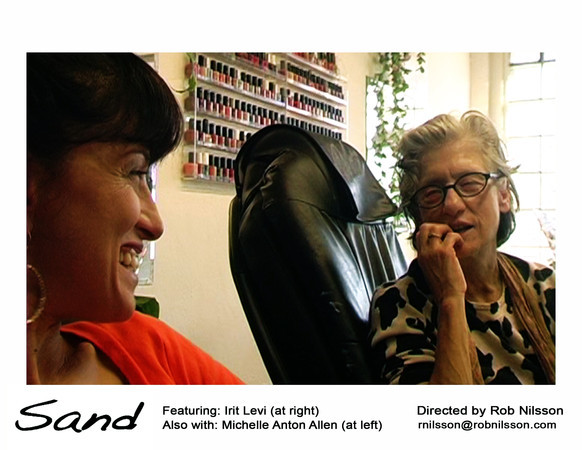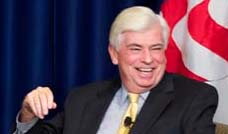
Nilsson went onto Harvard University, graduating in 1962 with an English degree. A two-year stint in Nigeria with the Peace Corps was followed by a year on the Biafran island of Fernando Po, off the West coast of Africa, where he decided to dedicate himself to a life in the arts. Returning to the US, Nilsson spent some time in Boston driving a cab. One of his fares became his wife; together they had daughter Robindira. Drawn back by "the setting and the miraculous feeling of the land," Nilsson moved his family to the west coast, settling in Marin. Nilsson's early years as a filmmaker were spent in San Francisco working with the Filmmaker's Union of San Francisco, and later co-founding the filmmaking collective CineManifest. There he met John Hanson, with whom he produced his breakthrough first feature, Northern Lights. That film debuted to rave reviews at the 1979 Cannes Film Festival and singled Nilsson out as a unique new voice in American cinema. His second film, Signal 7, was again a notable success, garnering positive reviews and breaking ground as the first video-to-film transfer to be shown around the world.
Nigeria RPCV Rob Nilsson Is Back With the World Premiere of "Sand," set in the New Mexican desert and follows two lonely, searching souls as they come together and split apart
MVFF: Rob Nilsson Is Back With Another World Premiere
In debuting Sand in Mill Valley, Bay Area filmmaking legend and Tam High grad continues to blaze a fiercely independent trail.
Prolific indie filmmaker and Bay Area legend Rob Nilsson premieres his latest film Sand at the Mill Valley Film Festival tomorrow in what has become almost an annual tradition of Nilsson's cinematic debuts in Mill Valley.
A "contemporary screwball comedy/film noir," Sand is set in the New Mexican desert and follows two lonely, searching souls as they come together and split apart. It screens on Saturday at 7:15 p.m. and Tuesday, Oct. 12 at 9:15p .m. at the Smith Rafael Film Center.
The relationship between Nilsson and the festival runs long and deep. His first feature film, Northern Lights, had its North American premiere in Mill Valley in 1979, fresh off its Camera d'Or win for best debut film at the Cannes Film Festival.
In the years since, Nilsson has premiered the majority of his films at the Mill Valley Film Festival ("too many to count," he says), appropriate given the fact that he graduated from Tam High in 1957, and still has strong ties to Mill Valley and Marin County.
Raised in Northern Wisconsin, Nilsson and his family moved west to join his grandfather, who had settled in Mill Valley a few years earlier and owned Strawbridge's Camera Store. The 14-year-old Nilsson started Tam High feeling "green and lost in the beginning… but in the end it was a pretty great experience."
Nilsson recalls the school as looking more like a college campus than a high school, and being introduced to be-bop and modern jazz during his time there. A runner since his Boy Scout days in Wisconsin, Nilsson competed on Tam's cross-country team and ran the Dipsea Race for many years before injuring his knee. In 1986, Nilsson paid homage to the mystique of Mill Valley's famed Dipsea with On the Edge.
After Tam, Nilsson went onto Harvard University, graduating in 1962 with an English degree. A two-year stint in Nigeria with the Peace Corps was followed by a year on the Biafran island of Fernando Po, off the West coast of Africa, where he decided to dedicate himself to a life in the arts.
Returning to the US, Nilsson spent some time in Boston driving a cab. One of his fares became his wife; together they had daughter Robindira. Drawn back by "the setting and the miraculous feeling of the land," Nilsson moved his family to the west coast, settling in Marin.
Nilsson's early years as a filmmaker were spent in San Francisco working with the Filmmaker's Union of San Francisco, and later co-founding the filmmaking collective CineManifest. There he met John Hanson, with whom he produced his breakthrough first feature, Northern Lights.
That film debuted to rave reviews at the 1979 Cannes Film Festival and singled Nilsson out as a unique new voice in American cinema. His second film, Signal 7, was again a notable success, garnering positive reviews and breaking ground as the first video-to-film transfer to be shown around the world.
On the Edge followed, and Nilsson said "it was the exact right time to make that movie. There was a running boom at the time… a feeling in the air." The film's lead character Wes (played by real-life ultra-marathoner Bruce Dern) was inspired by Wes Hildreth, a Tam High classmate of Nilsson's. "He was a better runner than I was, a real dogged guy just like Wes in the movie."
Shooting on Mt. Tam and the surrounding areas, Nilsson re-named the race the Cielo-Sea for the film and took some liberties with the actual route. But the film captures everything that makes the Dipsea such a grueling but beloved institution in Mill Valley. At the time of its release, Roger Ebert called it, "an angry, original, unpredictable movie. And it's not about winning. It's about the reasons that athletes carry in their hearts after all strength and reason have fled."
Drawing on his experience living on Fernando Po, Nilsson stepped in front of the camera to star in Heat and Sunlight, his 1988 feature about a San Francisco photojournalist haunted by the devastation he'd witnessed in Biafra years earlier. That film took the Grand Jury Prize at the Sundance Film Festival.
With mounting accolades from critics and film festivals around the world, Nilsson's career might have gone in any number of more commercial directions, but he continued instead to pioneer a gritty, authentic filmmaking style of his own.
Direct Action Cinema surrenders traditional narrative to the spontaneous, authentic interactions that arise in the moment of filming. Working primarily with non-professional actors, Nilsson's process involves workshops, improvisation, and group decision-making – a stark contrast to the director-centric style of filmmaking prevalent in Hollywood.
His stripped-down aesthetic allows him to work quickly and efficiently, moving easily around the streets and other real locations with just a hand-held camera and his actors.
Nilsson found fertile territory to explore in San Francisco's Tenderloin, and made a groundbreaking series of nine films, 9@Night, in collaboration with the Tenderloin yGroup, an inner-city acting workshop. Those nine films share characters and overlapping storylines, with dialogue and action largely improvised by the troupe of players.
Direct Action Cinema is a cinematic approach that works as well in Cape Town as it does in the Tenderloin, Nilsson says. "It works no matter where you go… The creativity of the everyday man and woman is usually unknown, even to them."
Nilsson has been invited to conduct workshops around the world, and has made feature films in South Africa, Japan, and Jordan using his collaborative approach.
With over thirty films to his credit and now entering his fourth decade as a filmmaker, what does Nilsson think about the films coming out of Hollywood today? "Largely disappointing," he says, though he singles out a few directors whose work he finds inspiring: Alejandro Gonzalez Inarritu (Babel), an honoree at this year's Mill Valley Film Festival, as well as Catherine Hardwicke (Lords of Dogtown, Twilight), and Hurt Locker director Kathryn Bigelow.
He also has great admiration for filmmakers working outside the U.S. studio system, like Iran's Mohsen Makhmalbaf ("one of the bolder humanists in modern cinema") and Armenia's Harutyun Khachatryan. He is encouraged by the fact that Inarritu works inside the studio system, showing that "sometimes the system can bend to genius."
Nilsson looks forward to seeing Inarritu's latest feature, Biutiful, which screens Friday October 8 at the festival, and has several other films on his list, including his CineManifest colleague Judy Irola's Niger'66, A Peace Corps Diary (screening Oct. 15 and Oct. 17)
Nilsson has continued to rack up critics' awards and widespread admiration as a true independent voice in cinema throughout his career. He was honored with a tribute by the Mill Valley Film Festival in 2000, received a 2006 Milley Award for Creative Achievement, and the San Francisco Film Critics Circle gave him their Marlon Riggs Award in 2008 for courage and innovation in cinema for the 9@Night series.
He even has an award named after him, the Filmmakers' Alliance Nilsson Award, which acknowledges and celebrates "bold, direct, honest and aesthetically challenging filmmaking that is often unrecognized by the mainstream independent film community." Nilsson selects the recipient of the award.
As the first American filmmaker to have won both the Camera d'Or and the Sundance Grand Jury Prize, Nilsson relishes the opportunity to return the favor with his eponymous award.
"Other than [being] a filmmaker, I always wanted to be a fan," he says. He likes the idea that the award can bring recognition to "someone that maybe the world doesn't know about." This year, Nilsson selected Armenian director Khachatryan.
Nilsson said he has no interest in slowing down and has several films in varying stages of production, including Steppes, which he shot in the Tenderloin with help from the Faithful Fools Street Ministry, and a feature-length documentary about Leon Trotsky.
A painter and poet all his life, Nilsson published in 2007 a volume of poetry evocatively titled From a Refugee of Tristan da Cunha.
Though he now calls Berkeley home, he's continued to nurture his Mill Valley connections, shooting the upcoming Maelstrom, which stars Mill Valley resident and former Olympic Champion Ed Ferry, at a Mill Valley house up on Mount Tampalpais, and Collapse, with principal dancers from SF Ballet and former principal dancer Russell Murphy, at 142 Throckmorton.
Sand's world premiere in Mill Valley continues the 31-year connection between an artist and an institution.
"The support of the festival means the world to me," he says, "I consider it one of the top three festivals in the world."
And Nilsson will have more than the birth of the film to celebrate: he also became a grandfather for the first time in late September.













